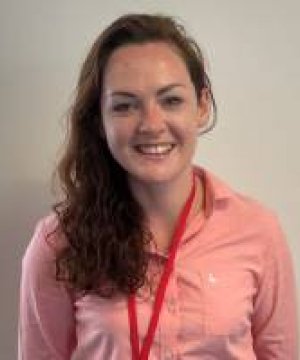Course details
At Homerton
We take up to five vets at Homerton each year and our pre-clinical DoS is Dr Liz Hook is responsible for vet students across the first two years with Dr Rachael McKinney looking after Extra-mural Studies and then taking over as our clinical DoS in year 4.
Homerton is increasingly a centre for bio-medical study, with our proximity to the Bio-Medical campus at Addenbrookes Hospital, and we have only recently started admitting students for Veterinary Medicine. Although we are not the nearest college to the Vet School (so bikes are recommended), we are delighted to see that our vets are forming part of a strong and enthusiastic group of Fellows, key researchers, postgrads and undergraduate students committed to the rigorous application of science to human and animal care. For most cohorts, we hope to be able to offer 6 years of accommodation.
All of your supervisors at Homerton are passionate about their subjects and extremely approachable and include many individuals who are experts in their field. We have a growing co-curricular delivery with sessions on ethics and professionalism shared with our medical colleagues and a plan to develop practical skills teaching in college.
The great thing about veterinary medicine at Cambridge is that the veterinary hospital is so close to the centre of town, so right from the start you get to see and handle animals. As well as that we can offer you really top class science here and the opportunity to be involved with cutting edge research as you study. The first two years teach you all the basic sciences to equip you for veterinary practice and your third year is spent on a specific area from pathology or pharmacology through to non-veterinary areas such as history and philosophy of science, should you be so inclined. At the vet school the great thing is that the year group is really small so you get lots of chances to be involved in clinical work, operating with our surgeons or with your hand up the back of a cow if farm work is your desire!
We are looking for students who have the academic ability and potential to succeed on the course, as well as the necessary interest in and motivation for the subject.
In order to explore Veterinary Medicine in more detail we would recommend the introductory reading and resources for prospective applicants and offer holders available here and here. You can also find the offer holder reading list available here.
If you are to be offered a place to read Veterinary Medicine you must satisfy the University’s pre-medical requirements. Put in their simplest form these require that you have obtained:
- passes at GCSE level in Biology, Physics and Mathematics (or in Double-award Science and Mathematics)
- passes at A-level in at least three subjects
- one of the subjects must be Chemistry and at least one pass must be at Advanced GCE
- registration for the Natural Sciences Admissions Assessment (NSAA) in October which replaces the previously used Biomedical Admissions Test (BMAT)
For these purposes a pass in the Scottish Advanced Highers, or at Grade 5 or above in the Higher Level of the International Baccalaureate, is considered equivalent to a pass at A-level. Candidates who are taking other subjects or examinations should write for advice before applying.
Please note that these are merely the University’s minimum requirements and that the College makes conditional offers of A*AA in Vet Medicine at A-level as an entry requirement, and IB with 40-42 points with 776 in Higher Level science and maths subjects.
Almost all of the applicants to Homerton will obtain at least A*AA grades at A-level or the equivalent. Whilst the College is prepared to consider applications from candidates offering a third A-level in a subject other than those listed above, should be stressed that most candidates will be studying three sciences or mathematics.
Homerton will interview applicants whom we think, on the basis of their application and performance in the written assessment, are capable of doing well on our courses. The two interviews will explore all aspects of the application from scientific ability to work experience and commitment to animal welfare.
You can explore your chosen subject through the Homerton Resources page.
The vast majority of successful applicants to Veterinary medicine at Homerton have three of Chemistry, Biology, Physics and Maths.
Admission Assessment: All applicants for Veterinary medicine must sit the Engineering and Science Admissions Assessment (ESAT) as part of the application to the University. Applicants must be pre-registered for this test. Please see check admission assessments for further details.
Please note that your performance in the written assessment will not be considered in isolation, but will be taken into account alongside the other elements of your application.
Written Work: There is no requirement to submit written work for Veterinary Medicine.



